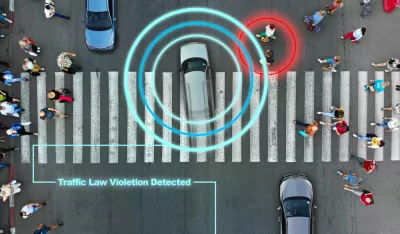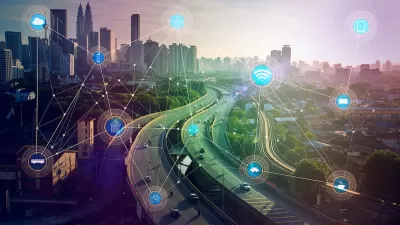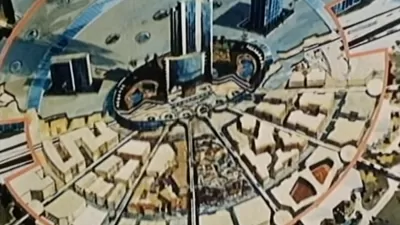The glamour of digital technology can obscure the hard work of building healthy, sustainable cities.

Writing in Technology Review, Riad Meddeb, interim director of the UNDP Global Centre for Technology, Innovation, and Sustainable Development, cautions that an overemphasis on “smart city” technology “risks a transactional—and limiting—approach to city improvement, focusing on immediate returns on investment or achievements that can be distilled into KPIs.”
A focus on building “smart cities” risks turning cities into technology projects. We talk about “users” rather than people. Monthly and “daily active” numbers instead of residents. Stakeholders and subscribers instead of citizens.
According to Meddeb, “Truly smart cities recognize the ambiguity of lives and livelihoods, and they are driven by outcomes beyond the implementation of ‘solutions.’ They are defined by their residents’ talents, relationships, and sense of ownership—not by the technology that is deployed there.”
Meddeb calls on cities to look beyond the flashy appeal of technology and explore the uses of digital technology while also doing the less glamorous work of tackling urgent problems like climate change, inequality, and pollution. For Meddeb, city leaders and policymakers must “move beyond the sales pitches and explore how our cities can be true platforms—not just technological ones—for inclusive and sustainable development.”
FULL STORY: We need smarter cities, not “smart cities”

Planetizen Federal Action Tracker
A weekly monitor of how Trump’s orders and actions are impacting planners and planning in America.

Restaurant Patios Were a Pandemic Win — Why Were They so Hard to Keep?
Social distancing requirements and changes in travel patterns prompted cities to pilot new uses for street and sidewalk space. Then it got complicated.

Maui's Vacation Rental Debate Turns Ugly
Verbal attacks, misinformation campaigns and fistfights plague a high-stakes debate to convert thousands of vacation rentals into long-term housing.

Boulder Eliminates Parking Minimums Citywide
Officials estimate the cost of building a single underground parking space at up to $100,000.

Orange County, Florida Adopts Largest US “Sprawl Repair” Code
The ‘Orange Code’ seeks to rectify decades of sprawl-inducing, car-oriented development.

Maui's Vacation Rental Debate Turns Ugly
Verbal attacks, misinformation campaigns and fistfights plague a high-stakes debate to convert thousands of vacation rentals into long-term housing.
Urban Design for Planners 1: Software Tools
This six-course series explores essential urban design concepts using open source software and equips planners with the tools they need to participate fully in the urban design process.
Planning for Universal Design
Learn the tools for implementing Universal Design in planning regulations.
Heyer Gruel & Associates PA
JM Goldson LLC
Custer County Colorado
City of Camden Redevelopment Agency
City of Astoria
Transportation Research & Education Center (TREC) at Portland State University
Camden Redevelopment Agency
City of Claremont
Municipality of Princeton (NJ)





























